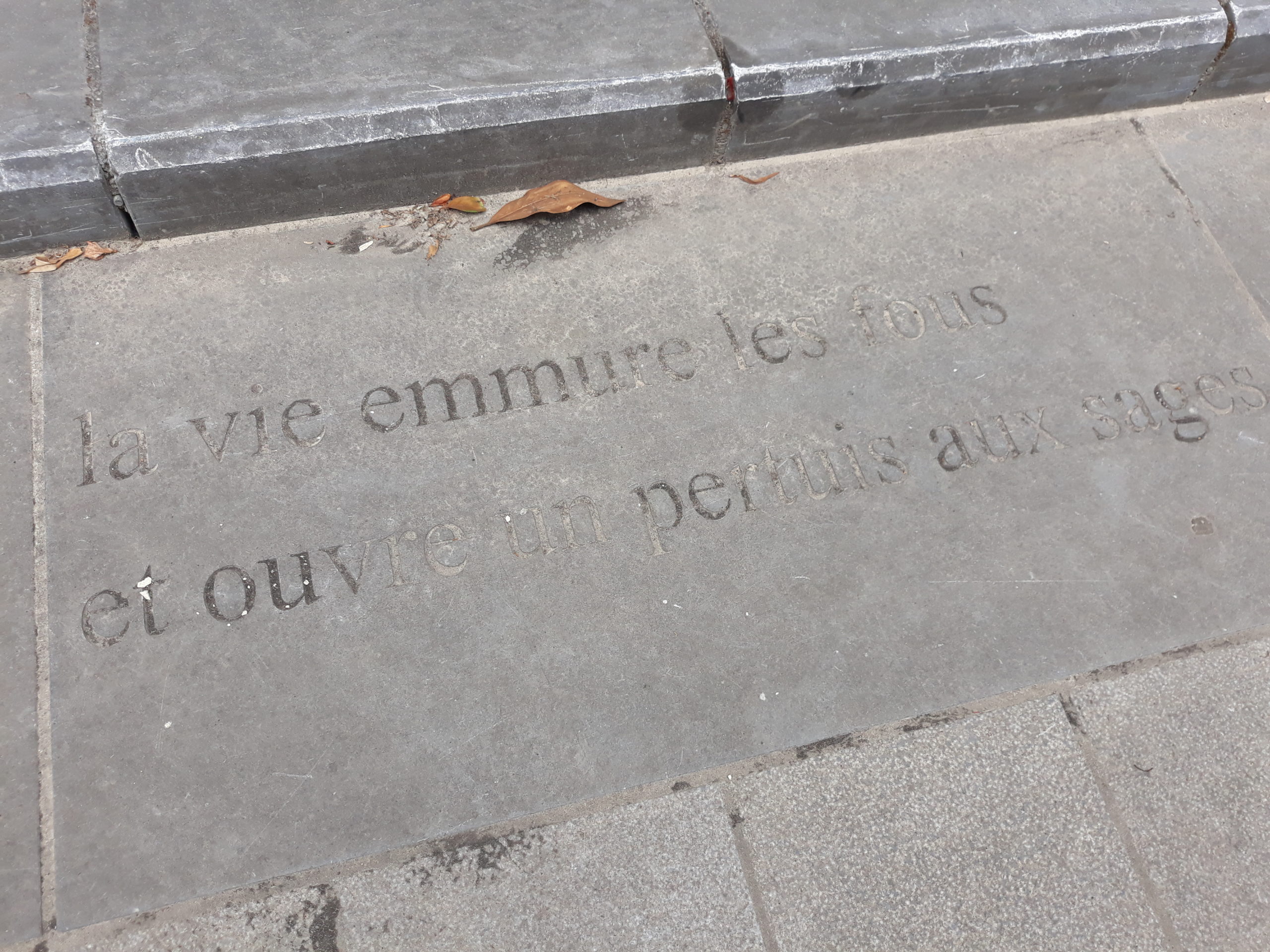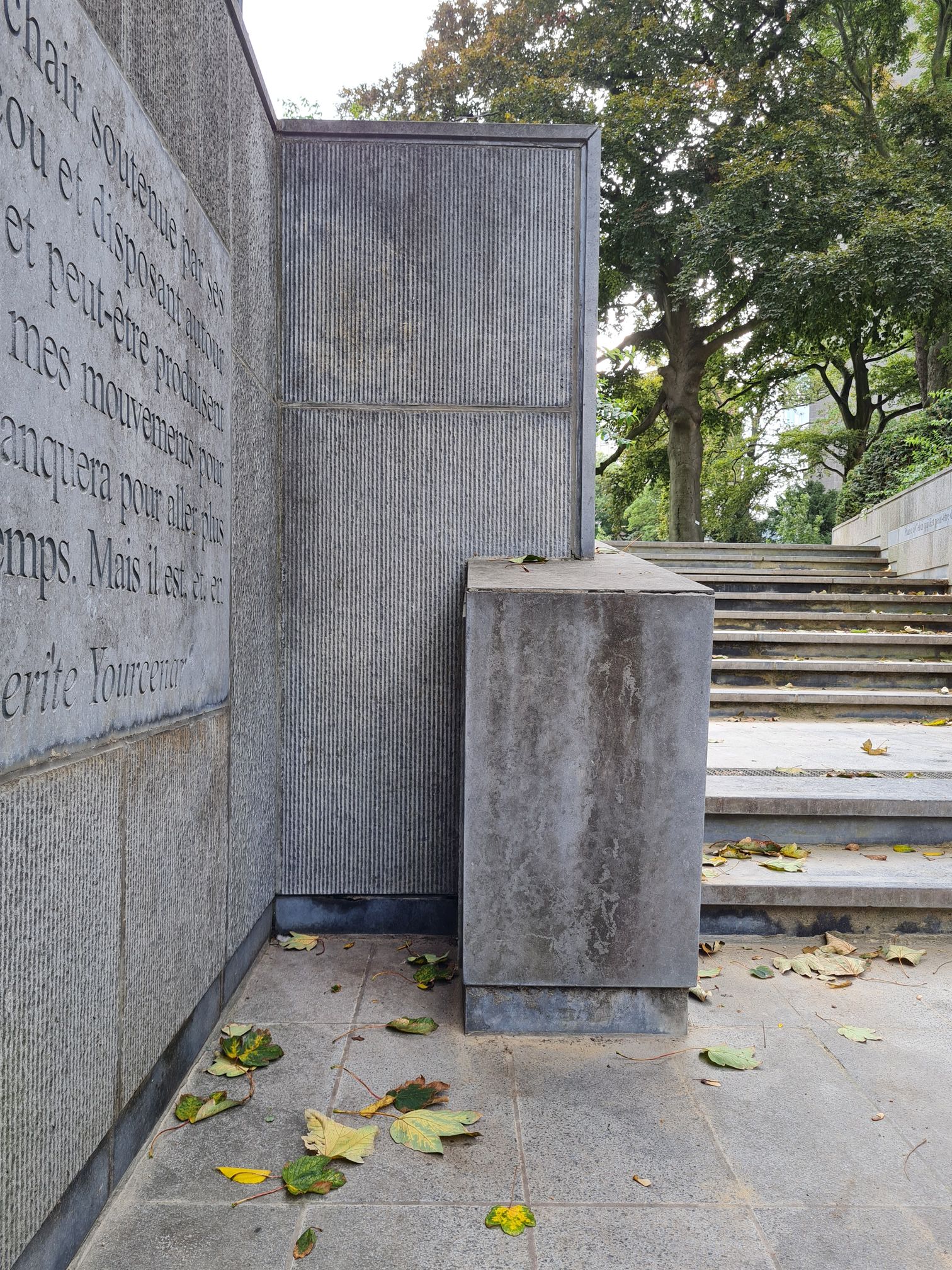Take a photo of a barcode or cover
Franchement je me suis trop perdu dans cette lecture, ça m'a fait penser à Candide de ouf mais version intelligent
Je suis heureux d'avoir lu ce roman, qui me restera en tête. Malgré (ou justement grâce à ?) un style trop recherché et sophistiqué pour moi, qui brouille le sens de certains passages, l'atmosphère est saisissante. Il est facile d'être séduit et fasciné par le personnage principal. J'ai été très convaincu, mais le style ne me parle pas vraiment personnellement, et m'empêche d'aller plus loin dans l'appréciation de l'oeuvre.
challenging
reflective
tense
slow-paced
Plot or Character Driven:
Character
Strong character development:
Yes
Loveable characters:
N/A
Diverse cast of characters:
N/A
Flaws of characters a main focus:
N/A
Belíssimo livro.
Remarkably immersive. The research which went into it is unconsciously evident, and the author’s post-script demonstrates how much work she put in, with regards to research. I rarely read ‘historical fiction’, and indeed, that isn’t what attracted me to this book. The premise sounded interesting, and it did not disappoint. The language had me transfixed, and every time I opened the book I was immediately transported to another world.
A rare delight!
A rare delight!
For no one is free so long as he has desires, wants, or fears, or even, perhaps, so long as he lives.
The Bruges physician, alchemist and philosopher Zeno is a searching, free spirit. His life story is the leitmotif in an epic chronicle of Europe ravaged by religious wars and burning of persons judged to be heretics. Travelling and fleeing, Zeno tries to survive in the turbulent and chaotic 16th century.
Marguerite Yourcenar (1903-1987, who made it to the first female member of the Académie Française in 1980, modelled Zeno from an amalgam of the lives of Giordano Bruno, Paracelsus, Da Vinci and Copernicus. Yourcenar depicts Zeno so real and lifelike that it would be impossible to not close him into the heart, taking the reader on a philosophical journey through time in his compelling company.

Men is niet vrij zolang men begeert, zolang men wil, zolang men vreest, misschien zolang men leeft.
De Brugse arts, alchemist en filosoof Zeno is een zoekende, vrije geest. Zijn levensverhaal vormt het leidmotief in een epische kroniek van het door godsdienstoorlogen en ketterverbrandingen geteisterde Europa. Reizend en vluchtend tracht Zeno in de woelige en chaotische 16de eeuw te overleven.
Yourcenar, die het in 1980 tot eerste vrouwelijk lid van de Académie Française schopte, boetseerde Zeno uit een amalgaam van de levens van Giordano Bruno, Paracelsus, Da Vinci en Copernicus. Toch is Zeno zo overtuigend en levensecht dat je hem gaandeweg in je hart sluit. Een filosofische tijdreis in fascinerend gezelschap.

The Bruges physician, alchemist and philosopher Zeno is a searching, free spirit. His life story is the leitmotif in an epic chronicle of Europe ravaged by religious wars and burning of persons judged to be heretics. Travelling and fleeing, Zeno tries to survive in the turbulent and chaotic 16th century.
Marguerite Yourcenar (1903-1987, who made it to the first female member of the Académie Française in 1980, modelled Zeno from an amalgam of the lives of Giordano Bruno, Paracelsus, Da Vinci and Copernicus. Yourcenar depicts Zeno so real and lifelike that it would be impossible to not close him into the heart, taking the reader on a philosophical journey through time in his compelling company.

Men is niet vrij zolang men begeert, zolang men wil, zolang men vreest, misschien zolang men leeft.
De Brugse arts, alchemist en filosoof Zeno is een zoekende, vrije geest. Zijn levensverhaal vormt het leidmotief in een epische kroniek van het door godsdienstoorlogen en ketterverbrandingen geteisterde Europa. Reizend en vluchtend tracht Zeno in de woelige en chaotische 16de eeuw te overleven.
Yourcenar, die het in 1980 tot eerste vrouwelijk lid van de Académie Française schopte, boetseerde Zeno uit een amalgaam van de levens van Giordano Bruno, Paracelsus, Da Vinci en Copernicus. Toch is Zeno zo overtuigend en levensecht dat je hem gaandeweg in je hart sluit. Een filosofische tijdreis in fascinerend gezelschap.

slow-paced
Plot or Character Driven:
N/A
Strong character development:
No
Loveable characters:
No
Diverse cast of characters:
No
Flaws of characters a main focus:
No
reflective
slow-paced
Strong character development:
Yes
Flaws of characters a main focus:
Yes
First read 07/2024
The road, bordered by poplars, stretched out level before them, opening to them a fragment of boundless universe; the adventurer seeking for power and the adventurer in quest of knowledge strode forward together, side by side.
Marguerite Yourcenar's novel about a sixteenth century alchemist, Zeno of Bruges, forms the second panel of what she called a triptych, consisting also of Memoirs of Hadrian and Anna, Soror... Slightly disappointing compared to Hadrian, who as a character has more humanity, but nonetheless an impressive book. Filled with oodles of research, as much to capture the mindset of the time as archaeological details ("without which a "historical novel" is merely a more or less successful costume ball," as Yourcenar says in her author's note, which is good enough to differentiate between her research and her inventions), it's easily likened to the later The Name of the Rose. Eco's murder mystery, however, takes care to introduce uninformed characters, so that the complexities of contemporary heresy can be explained for the reader's benefit. Yourcencar offers no such support, so her book is a perplexing swirl of names, titles, and allusions that are surprisingly reminiscent of worldbuilding-heavy fantasy or science fiction novel. I like that sort of thing, but mileage may vary.
It is a slow and philosophical book, and while many of its observations are particular to the alchemy of the day, other retain their bite, fifty-six years on:
It is strange that for Christians the supreme evil is constituted of so-called errors of the flesh. No one chastises savagery and brutality, barbarity and injustice with the same fury and disgust. No one will judge those good folk obscene who will come to watch me tomorrow, writing in the flames.
The road, bordered by poplars, stretched out level before them, opening to them a fragment of boundless universe; the adventurer seeking for power and the adventurer in quest of knowledge strode forward together, side by side.
Marguerite Yourcenar's novel about a sixteenth century alchemist, Zeno of Bruges, forms the second panel of what she called a triptych, consisting also of Memoirs of Hadrian and Anna, Soror... Slightly disappointing compared to Hadrian, who as a character has more humanity, but nonetheless an impressive book. Filled with oodles of research, as much to capture the mindset of the time as archaeological details ("without which a "historical novel" is merely a more or less successful costume ball," as Yourcenar says in her author's note, which is good enough to differentiate between her research and her inventions), it's easily likened to the later The Name of the Rose. Eco's murder mystery, however, takes care to introduce uninformed characters, so that the complexities of contemporary heresy can be explained for the reader's benefit. Yourcencar offers no such support, so her book is a perplexing swirl of names, titles, and allusions that are surprisingly reminiscent of worldbuilding-heavy fantasy or science fiction novel. I like that sort of thing, but mileage may vary.
It is a slow and philosophical book, and while many of its observations are particular to the alchemy of the day, other retain their bite, fifty-six years on:
It is strange that for Christians the supreme evil is constituted of so-called errors of the flesh. No one chastises savagery and brutality, barbarity and injustice with the same fury and disgust. No one will judge those good folk obscene who will come to watch me tomorrow, writing in the flames.
Plot or Character Driven:
Character
Strong character development:
Yes
Loveable characters:
Yes
Diverse cast of characters:
No
Flaws of characters a main focus:
Yes
I'm finding out I'm not a huge fan of books that delve into character psychology
Ho faticato nella prima parte a entrare in comunicazione con questo libro. La scrittura, per quanto curata, mi sembrava astratta e distante, difficile da seguire la vicenda.
Dalla seconda parte in poi l'ho divorato. Splendide le ultime pagine. L'impressione è che ci sia tanto che non ho colto. Sicuramente è un romanzo da rileggere dopo aver studiato di più.
Dalla seconda parte in poi l'ho divorato. Splendide le ultime pagine. L'impressione è che ci sia tanto che non ho colto. Sicuramente è un romanzo da rileggere dopo aver studiato di più.







